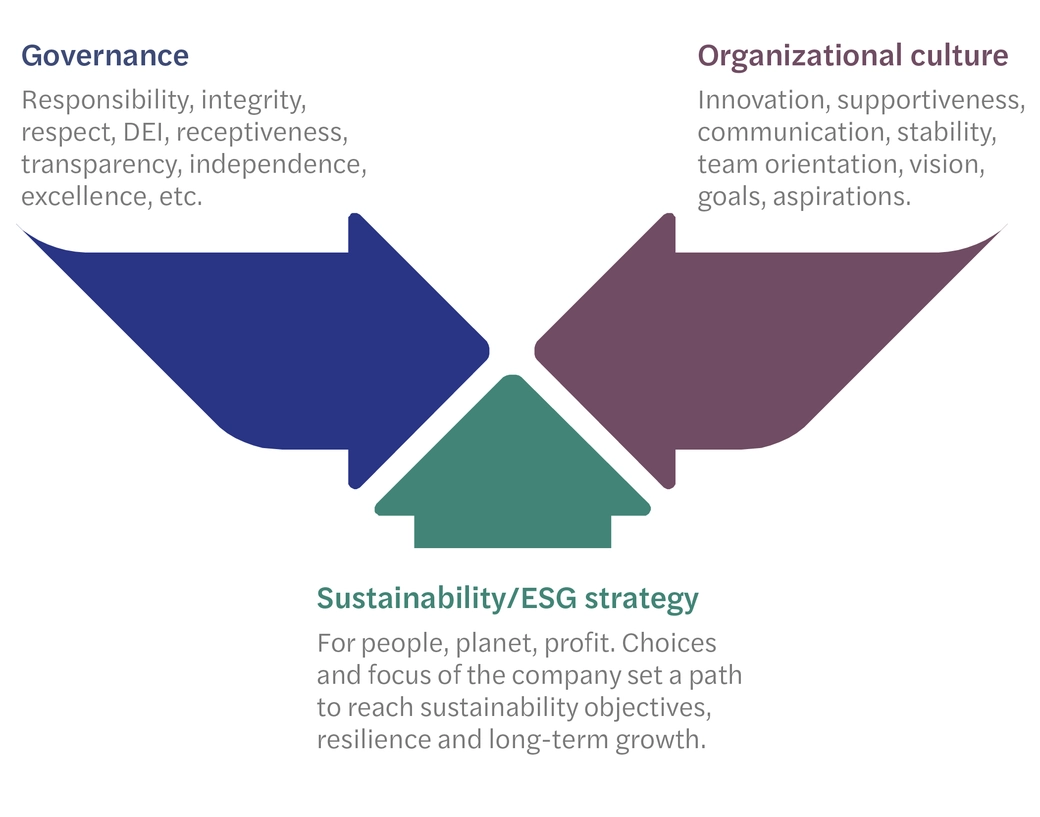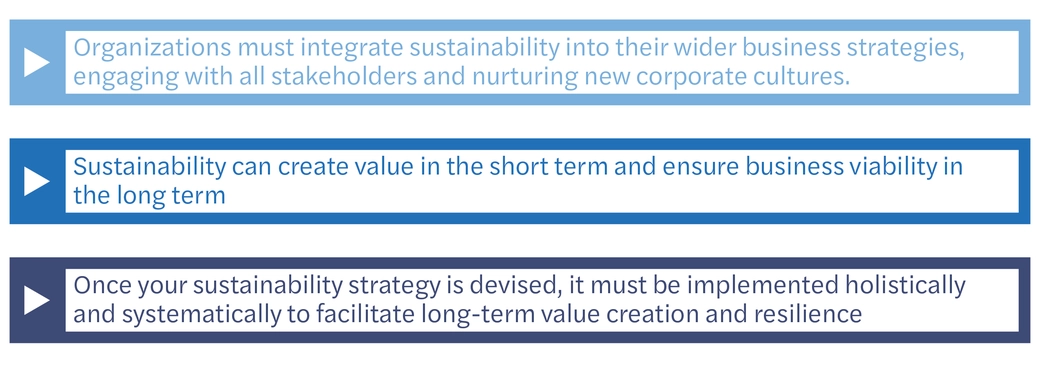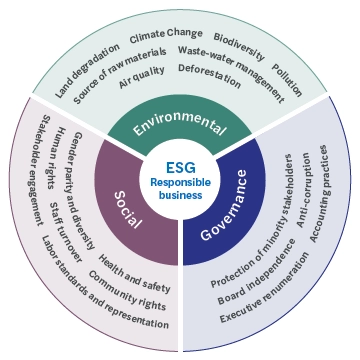
ESG strategy and implementation
A well-defined strategy propels an organization’s sustainability journey. We help you develop a tailored, achievable sustainability and ESG1 strategy, from design and implementation to reporting and assurance. We can also guide you in integrating this strategy into your organizational culture and broader governance.
|
|
Mazars can help you:
- Identify and manage the ESG material topics with the biggest impact on your business and stakeholders, based on sustainability standards and frameworks (e.g., SASB, TCFD, GRI, SDGs).
- Develop a strategy based on key sustainability risks (e.g., physical, reputational) and opportunities (e.g., efficiencies, talent attraction and retention).
- Conduct a stakeholder analysis, manage KPIs, enact ESG initiatives and targets.
- Embed sustainability in your governance and corporate culture, aligned with your broader corporate mandate
ESG strategy formulation
An effective ESG strategy needs to be integrated into your wider business and mission of creating long-term value for your organization and your stakeholders, while caring for people, planet and sustainable profit.
We can assist clients in managing the complexities of ESG, based on a five-step approach:
More in our Practical Guide for Leadership.
At Mazars, we have the expertise to help you connect the dots and design a customized ESG strategy that ensures regulatory compliance, meets stakeholder expectations, facilitates execution and showcases your commitment to sustainability.
ESG Implementation and Transformation
One of the biggest challenges that companies face today is embedding sustainability in every facet of their business. By implementing a sound ESG strategy, companies can embark on a transformative path toward economic growth and resilience. |
Sustainability is a business investment. An ESG strategy helps organizations be more nimble, adaptable, innovative, and proactive in the face of unanticipated social, economic, and environmental incidents. A commitment to ESG, which can enable company transformation, requires a customized strategy that is rooted in leadership and organizational buy-in.
More and more organizations are adopting sustainability strategies as part of their operations and overall strategic management, addressing various ESG factors that include, but are not limited to: |
[1] Used Interchangeably. Sustainability comprises three pillars: social, economic, and environmental. ESG is a private sector-led framework for managing sustainability, including a company’s governance.
Contact






